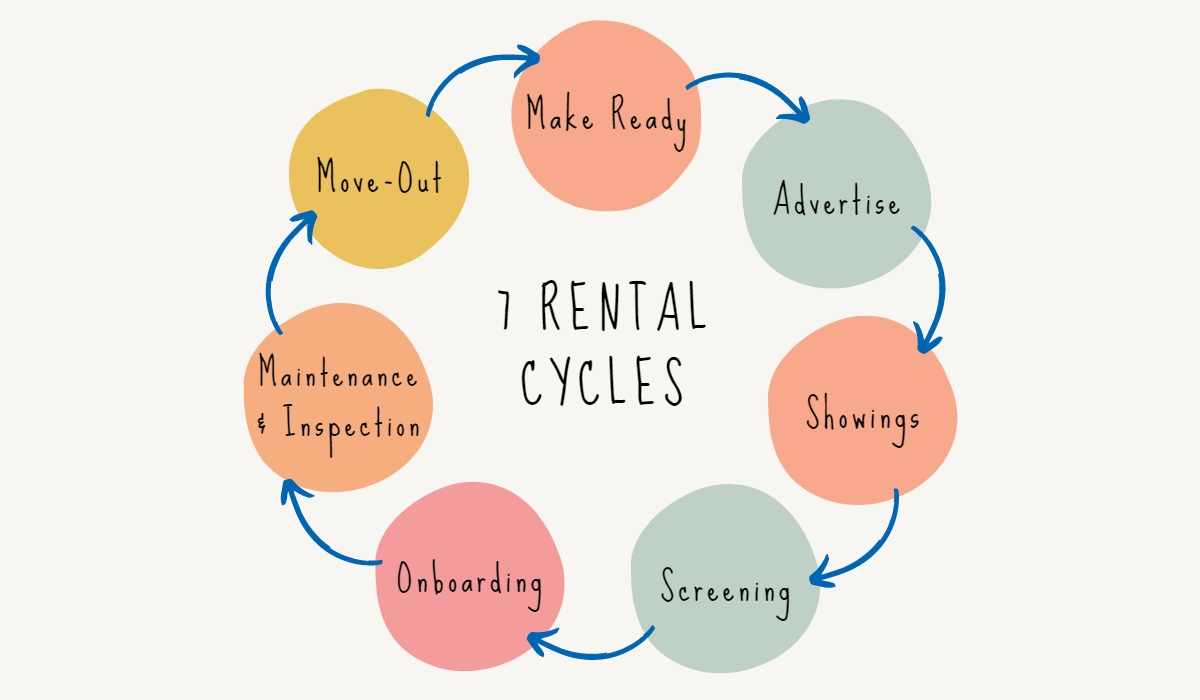Renting out a property may look overwhelming initially, but knowing what you have to do step-by-step should help you better manage the whole process. Below is one example of that. Know that it’s impossible to cover everything in one article, so do your due diligence before you jump in.
1. Make the property rent ready.
When it comes to making a property ready, ask these three questions.
Is it safe?
Is it clean?
Is it functional?
While this may not cover everything, you can use this rule as a quick check to determine the readiness of your property. One thing to remember is you no longer want to use your personal standard, which may be higher or lower than what is necessary and required. Make sure you know what kind of condition is generally accepted as a rental property.
2. Advertise
While you want to make your ad effective to get a good tenant, one of the most important things to remember when it comes to advertising is fair housing. The thing is you not only need to know the federal laws but also the state laws. Yet knowing the federal and state laws may not be enough as different county and municipality may have their own even stricter guidelines. But there’s more. The rules change depending on if you have a real estate license or if it’s owner-occupied, and so on. Finally, even if you memorized every fair housing law out there, that still may not be enough because you need to know how it will be interpreted. For example, can you put “walking distance to a train station” in your ad? Would this be considered discrimination again those who can’t walk? The rule of thumb that you may choose to use is to study the laws, know what is generally accepted as an interpretation (which could change,) and just follow the strictest rule, so you don’t have to keep track of multiple standards depending on the locations and situations. Finally, know that laws will change, so you want to be on top of the latest laws.
3. Showings
Know that renting out a property is a business, and a lot of different laws kick in. The above “Advertise” rule will apply to “showing” also. For example, you do NOT want to say, ”This is a great house for a single guy like yourself.” If a group of families was there listening to that, they could take it as discrimination. It doesn’t matter what your intent was, so be aware.
Other things to consider when it comes to showings;
- Have a process from start to finish, and stick to it.
- When someone wants to see your house, schedule within 48h, preferably within 24h.
- Consider your safety. You are showing a house to a stranger.
- Follow up to get feedback.
- Record the statistics (how many calls, how many showings, how many applied, etc.) for analysis.
- Keep a record of those who called, especially the one who qualifies. You may be able to use the list in the future.
4. Screening
There are a lot of screening companies out there. Pick one that is reputable. Choosing the company that will give you a credit score may be helpful. Everyone’s situation is different, and without having some score, it gets tricky to make an objective decision, or you may be interpreted as a discriminatory decision, even if you think it was an objective one. Having a standard such as “minimum score is XYZ” would virtually eliminate such concerns. It helps to have the standard written to avoid any confusion. Putting on the application form may be the way to go.
5. Onboarding
Now that you found a tenant, it’s time to go through some administrative work.
- Get the lease signed.
- Make sure all the utilities are set to go and transferred to the tenant's name if that’s how you want it.
- If you require, make sure that the tenant has proper renter's insurance.
- Receive the rent and the security deposit.
- Do the pre-move-in inspection with photos and have the tenant sign it.
- Walk through the property with the tenant.
- Have the tenant set up an online rent collection if that’s how you decide to receive rent.
- Give some general guidance on how everything works on the property.
- Show the tenant where the main water shut off is, in case some unstoppable water leak happens.
- Provide “one tenant per dwelling unit with written information regarding (smoke) detector testing and maintenance.” That’s the IL law!
6. Maintenance & Inspection
Regardless of how well you maintain your property, there will be a time it needs some repairs and improvements. One thing you can do is visit the property every so often and check the condition of the property yourself. Make sure you give enough notice to the tenant before the visit. Some tenants may get used to a leaky drain or may not notice until it’s too late. When the tenant calls you for an issue, you should be glad that you are getting that call because, without it, chances are the issue will come back at you much bigger which means more expensive. While you have no maintenance calls, try establishing a relationship with different people from different trades, so that you know who to call when issues arise.
7. Move-Out
At some point, your tenant will move out. If you are going to continue to rent, you may want to start advertising as soon as you know that the tenant is moving out. Showing while the tenant is still living can get a little tricky as the house may not be in the right condition. Also, what happens when you sign up with a new tenant, but the current tenant doesn’t leave at the end of the lease? The benefit of showing while the tenant is still living is that you should be able to reduce the vacancy. If the house needs a lot of work, you may decide to wait until everything is fixed up before you show. That said, you can still advertise, probably with just the front of the house or with old interior pictures (as long as that’s how it’ll look after the fix-up.) You may not do the showing, but you can collect the names of those who are interested in the house. Show those people once the property is ready.
As mentioned at the beginning of this article, there’s more to managing properties than what is covered in this article. That said, I hope that this will give you some general guidance regarding what you need to do. The important thing is to continue to educate yourself, and question what you know, even this article, as there’s always a better way to manage properties.


